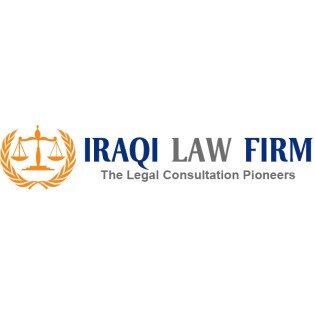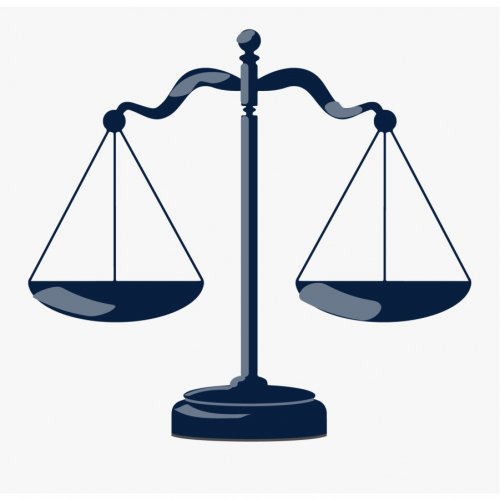Best Financial Services Regulation Lawyers in Iraq
Share your needs with us, get contacted by law firms.
Free. Takes 2 min.
Or refine your search by selecting a city:
List of the best lawyers in Iraq
About Financial Services Regulation Law in Iraq
The Financial Services Regulation in Iraq governs the functioning and oversight of financial institutions, including banks, investment companies, and insurance entities. This regulation aims to ensure the stability and transparency of Iraq's financial sector, protect consumers, and promote fair practices. The regulatory framework has been evolving since the 2003 reform process, focusing on modernizing the financial system to accommodate Iraq's economic development needs.
Why You May Need a Lawyer
There are numerous situations where individuals or businesses might require legal assistance in financial services regulation. Common scenarios include:
- Navigating regulatory compliance for financial institutions or businesses.
- Addressing issues related to licensing and operations of financial entities.
- Handling disputes related to financial transactions or services.
- Understanding and applying Iraq’s financial laws for investment purposes.
- Responding to regulatory investigations or enforcement actions.
Engaging a lawyer with expertise in financial services regulation can help ensure compliance with local laws and provide strategic legal solutions tailored to specific challenges.
Local Laws Overview
The key aspects of local laws relevant to financial services regulation in Iraq include:
- The Central Bank Law, which governs the operations of the Central Bank of Iraq (CBI) and its regulatory authority over financial institutions.
- The Banking Law, which outlines the requirements and procedures for establishing and operating banks in Iraq.
- Investment Laws that provide guidelines for foreign and domestic investments within the financial services sector.
- Anti-Money Laundering and Counter-Terrorism Financing laws aimed at preventing illegal financial activities.
- The Companies Law, as it pertains to the structuring and governance of financial firms operating in Iraq.
Frequently Asked Questions
What is the role of the Central Bank of Iraq?
The Central Bank of Iraq (CBI) regulates the banking sector, issues currency, manages monetary policy, and works to ensure the stability of the financial system.
Who needs to comply with financial services regulations in Iraq?
All entities involved in offering financial products or services within Iraq, including banks, investment firms, and insurance companies, must comply with financial services regulations.
How can a foreign company establish a financial business in Iraq?
Foreign companies must obtain the necessary licenses from regulatory bodies, adhere to commercial registration requirements, and fulfill specific conditions related to capital and local partnerships.
What are the penalties for non-compliance with financial regulations?
Penalties can range from monetary fines and sanctions to revocation of licenses and, in severe cases, criminal charges against responsible individuals.
How does one apply for a banking license in Iraq?
Interested parties must submit an application to the Central Bank of Iraq, providing detailed information about their business plan, financial health, and compliance strategies.
What consumer protections exist under Iraq's financial regulations?
Regulations ensure that financial institutions adhere to fair treatment practices, maintain transparency, and honor the rights of consumers in their dealings.
Can individuals seek recourse for disputes with financial institutions?
Yes, consumers can file complaints with the financial institution in question and/or escalate matters to the CBI or relevant judicial bodies if unresolved.
Are there specific laws governing Islamic financial services in Iraq?
Yes, Iraq has regulations that cater to Islamic banking and finance, aligning financial practices with Shariah principles.
How is anti-money laundering enforced in the financial sector?
Financial institutions are required to implement rigorous KYC (Know Your Customer) procedures, report suspicious activities, and follow regulations set by Iraq's Financial Intelligence Unit.
What legal steps are involved in financial regulatory dispute resolution?
The process typically involves negotiation, formal complaint filing, regulatory hearing, and if necessary, litigation in Iraq's commercial courts.
Additional Resources
Consider the following resources for more information:
- Central Bank of Iraq (CBI): The primary regulator and administrator of monetary policy and financial regulation.
- Iraq Securities Commission (ISC): Regulates and supervises Iraq's securities market.
- Iraq Insurance Diwan: The regulatory authority for insurance-related activities.
- Ministry of Finance: Provides insight into governmental fiscal policies and financial regulations.
Next Steps
If you need legal assistance in financial services regulation, consider the following steps:
1. Identify and contact a reputable lawyer specializing in financial law and regulations in Iraq.
2. Gather all relevant documents and information regarding your situation for consultation.
3. Schedule a meeting to discuss your needs, explore your options, and develop a legal strategy.
4. Follow through on legal advice and ensure all documentation and compliance requirements are met promptly.
Seeking professional legal assistance can significantly aid in effectively navigating regulatory complexities and protecting your interests within Iraq's financial services sector.
Lawzana helps you find the best lawyers and law firms in Iraq through a curated and pre-screened list of qualified legal professionals. Our platform offers rankings and detailed profiles of attorneys and law firms, allowing you to compare based on practice areas, including Financial Services Regulation, experience, and client feedback.
Each profile includes a description of the firm's areas of practice, client reviews, team members and partners, year of establishment, spoken languages, office locations, contact information, social media presence, and any published articles or resources. Most firms on our platform speak English and are experienced in both local and international legal matters.
Get a quote from top-rated law firms in Iraq — quickly, securely, and without unnecessary hassle.
Disclaimer:
The information provided on this page is for general informational purposes only and does not constitute legal advice. While we strive to ensure the accuracy and relevance of the content, legal information may change over time, and interpretations of the law can vary. You should always consult with a qualified legal professional for advice specific to your situation.
We disclaim all liability for actions taken or not taken based on the content of this page. If you believe any information is incorrect or outdated, please contact us, and we will review and update it where appropriate.
Browse financial services regulation law firms by city in Iraq
Refine your search by selecting a city.

















